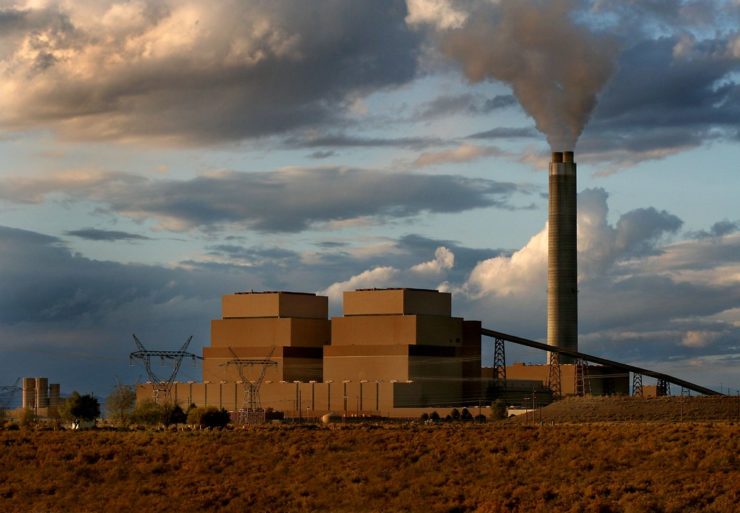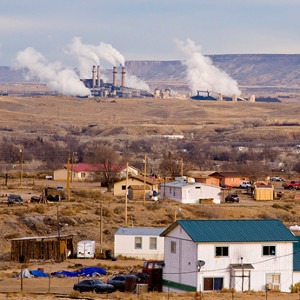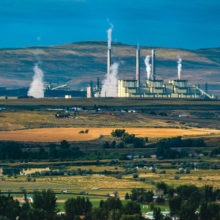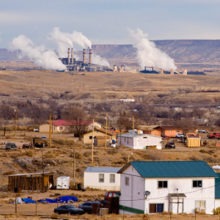- Despite strong community bonds and engaged leaders, many isolated coal-dependent communities struggle with limited planning and fiscal capacity and face a complicated and disjointed transition challenge beset with barriers.
- An experienced group of community leaders, academics, and public policy experts met to share knowledge and suggest solutions for coal communities in transition. They agreed that community success lay in building wealth over time and strengthening community capacity.
- Eleven fiscal policy solutions can begin to address local vulnerabilities and dismantle exogenous barriers.
- A Transition Revenue and Investment (TRI) strategy provides a framework for identifying solutions to help communities allay the economic impacts of coal mine and coal plant closures, build wealth, and invest for the future.
The U.S. energy sector is transitioning away from the use of coal in power generation. Coal burned for power generation has declined by nearly 40% due to the closure of dozens of coal-fired power plants since 2010.
When coal mining and power generation operations cut back or retire, states and communities feel the pinch—especially when they have depended on coal-related tax and royalty revenues for many years to pay for roads and bridges, schools, fire departments, and other government services. Sixty-six U.S. counties will experience the partial or full closure of a coal mine or power plant in the coming decade.

Image courtesy of arbyreed on Flickr.
Subscribe to our newsletter!
Headwaters Economics hosted a Coal Transition Solutions Forum in 2018 to develop fiscal policy solutions that could begin to unwind dependence on coal for revenue and build wealth and capacity in vulnerable communities. Forum participants wrestled with two questions over two days:
- How do states and communities replace tax and royalty revenue lost when coal facilities retire?
- How can communities most vulnerable to economic and fiscal impacts of closures build wealth and invest for a future without coal?
Eleven fiscal solutions were identified. Solutions are summarized below and analyzed in detail in the full report. Solutions were organized into revenue, investment, and assessment/planning solutions—the three components of a Transition Revenue and Investment (TRI) Strategy.
Solutions for Communities Transitioning Away from Coal
Revenue solutions identify specific fiscal strategies or policies that may replace lost coal revenue for general government and that dedicate revenue for transition. Revenue solutions include:
- Reallocate coal revenue to transition needs and priorities;
- Broaden the tax base to replace lost coal revenue;
- Ensure resource taxes address transition needs and priorities;
- Fund effective federal grant and loan programs for coal communities;
- Secure one-time transition payments from facility owners; and
- Increase local fiscal autonomy, including allowing for local savings authority.
Investment solutions identify fiscal strategies that link revenue with strategies that bolster community economic resilience and the capacity of local institutions. These solutions focus on enhancing competitive advantages and capturing, keeping, and circulating investment capital within the community while expanding opportunities and choices for workers and their families. Investment solutions include:
- Invest in local institutional capacity;
- Invest in workforce and entrepreneurs;
- Secure investment capital for transition communities and businesses.
Assessment and planning solutions encourage communities to assess their level of dependence and exposure to fiscal risks when coal revenue declines or ends – before revenue declines or ends. Communities understand fiscal policy tools and barriers. Assessment and Planning solutions include:
- Require and support transition planning in resource-dependent communities.
- Establish and support regional authorities and teams to lead transition planning.
Building Wealth
The most effective fiscal policies for communities facing transition are those that enable places to build wealth over time and strengthen community capacity.

Building wealth can be accomplished through effective taxation of resource activities, autonomy for local governments to establish permanent savings, and ensuring resource revenue is linked to long-term strategies to build resilience and capacity rather than funding tax breaks and annual operations that lead to dependence.
Equally important, fiscal policies must allow communities to realize benefits from activities other than resource extraction such as recreation, restoration, and diversified services.
What is “fiscal transition”?
Transition, from a fiscal perspective, means communities have successfully replaced coal revenue and can fund local services, infrastructure, and institutions with stable and diverse sources—that is, coal revenue is not replaced with politically uncertain appropriations or by dependence on a new volatile sector.
Funds also are available to pay for lifecycle coal development costs including development impacts, facility closure, reclamation and workforce and community transition costs (including workforce retraining and/or relocation). Reserves are on hand to contribute to unanticipated transition costs.
Finally, communities have resources to invest throughout the duration of coal activity in assets that continue to generate wealth after coal revenue declines and to increase resilience and capacity of local institutions. Resilient local institutions help these communities adapt to change.



